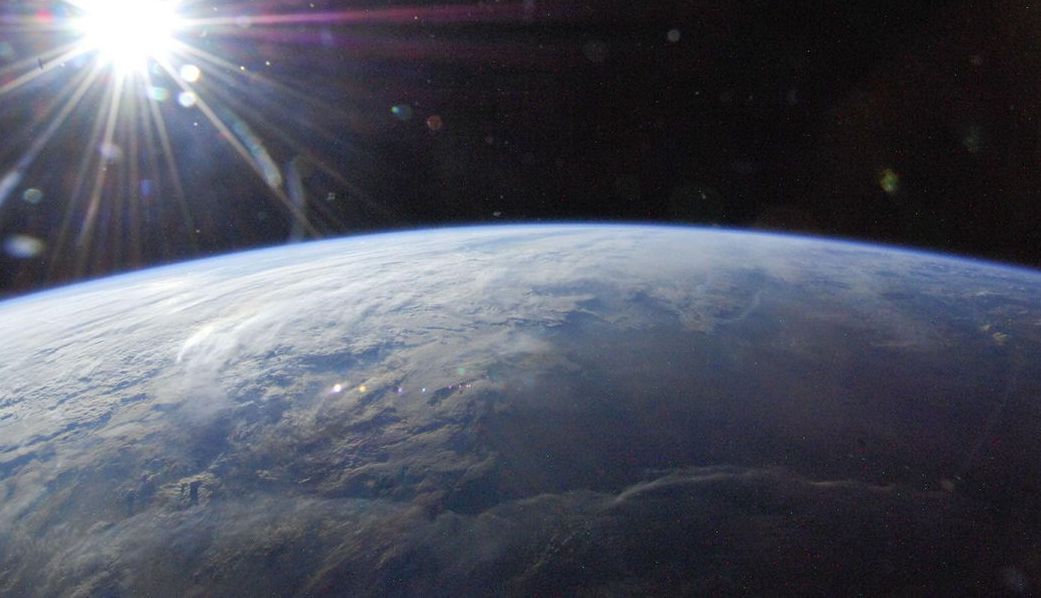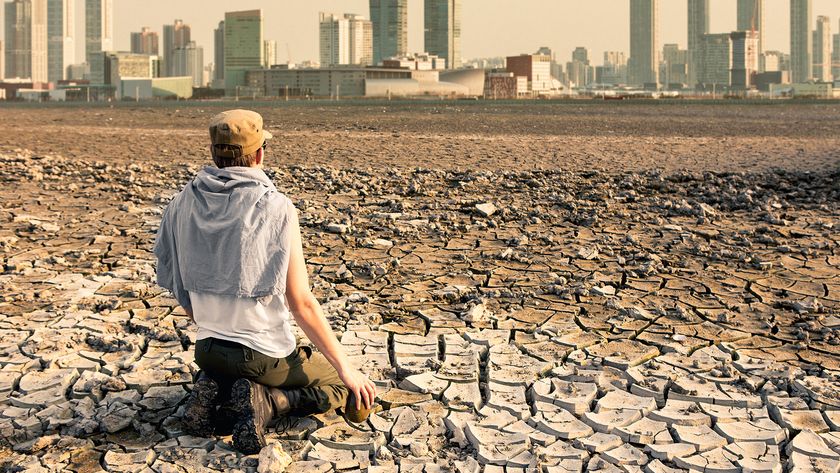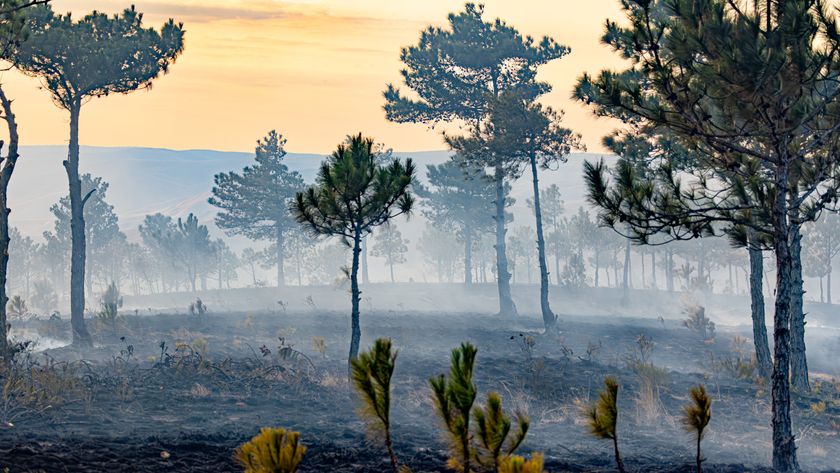
Stop Attacking Scientists for Reporting the Truth on Climate Change (Op-Ed)

Rush Holt is CEO of the American Association for the Advancement of Science (AAAS) and executive publisher of Science and its family of journals. Chris Field is director of the Carnegie Institution's Department of Global Ecology and a professor for interdisciplinary environmental studies at Stanford University. The authors contributed this article to Live Science's Expert Voices: Op-Ed & Insights.
Multiple lines of well-established evidence point to the reality of human-caused climate change. The impacts are now apparent — and range from rising sea levels to increased weather extremes, including more severe storms, droughts, heat waves and wildfires. In response, the world's nations came together late last year at the U.N. Climate Change Conference in Paris with a commitment to fix the problem.
Yet, back in the United States, Rep. Lamar Smith, R-Texas — as Chairman of the Science, Space, and Technology Committee — continues to call for "all documents and communications" related to research by a team from the National Oceanic and Atmospheric Administration (NOAA) that seemed to debunk the notion of a global warming slowdown, or "pause." Such efforts, which came up again when NOAA Administrator Kathryn Sullivan testified March 16 before the House Subcommittee on Environment, are little more than a red herring. In other words, they distract Americans from the primary point: that climate change is real , it's happening now and it's caused mostly by human activities such as fossil-fuel burning and deforestation.
This is not the first time climate researchers have had to cope with ill-considered requests for emails and other documents. When climate scientist Michael Mann, now at Pennsylvania State University, was at the University of Virginia, he withstood then-Virginia Attorney General Ken Cuccinelli's sweeping demand for documents regarding his climate research. The Supreme Court of Virginia eventually ruled in Mann's favor. There also was controversy when Rep. Raul Grijalva, D-Ariz., sent letters to seven universities, seeking information on funding for several scientists who have been skeptical of, or have made controversial remarks about, climate change. He later acknowledged that he was overreaching in requesting the scientists' communications.

Climate in context
The science on climate change is convincing. In its Fifth Assessment Report, published in 2013, the Intergovernmental Panel on Climate Change (IPCC) concluded that warming between 1998 and 2012 was "around one-third to one-half" less rapid than over the period from 1951 to 2012.
Those who choose to ignore the overwhelming evidence of climate change have used that statement to argue that global warming has stopped, that something other than greenhouse gases is at work or that climate scientists have a poor understanding of their subject.
Sign up for the Live Science daily newsletter now
Get the world’s most fascinating discoveries delivered straight to your inbox.
The IPCC was careful to acknowledge, however, that any trend inferred from only a few years of observations is tenuous, largely because natural variations like El Niño can have an outsize influence. [Unilever CEO: Why Sustainability Is No Longer a Choice (Op-Ed )]
Indeed, selecting 1998 as a starting year automatically makes trends for the next few years look small because 1998 was an unusually warm El Niño year. Still, the IPCC was frank in making the best available interpretation of the data available — data that have been examined, analyzed and validated by research teams around the world.
But based on newly available information, one of the teams that analyze global temperature data realized that some of the temperatures could be made just slightly more accurate.
The refinements to the temperature record are subtle but important, like adding the final buff to a freshly waxed car. However, an understanding of our planet and the way it is changing improves with each refinement, even if it is small.
Science at work
Consistent with their responsibility as scientists, the team that developed the refined temperature time series — Thomas Karl and colleagues at NOAA — described their results in a paper in the journal Science last June and argued that the improved temperature record no longer shows evidence of a slowdown in global warming. Such revisions are part of normal scientific discourse, and the government-funded scientists who pursued them should not be subjected to legislative subpoenas.
The Science paper was part of a large effort by Karl and others at NOAA's National Centers for Environmental Information, as well as climate analytics specialist James McMahon of LMI Consulting, to develop the most accurate possible record of the Earth's surface temperature, based on thermometers.
Developing an accurate record involves many refinements, as Karl's team has done, to adjust for factors like the growth of cities around weather stations, increases in the number of stations on land, and changes in the techniques for measuring ocean temperatures. These changes include buckets thrown overboard (where measurements were very spotty), to engine intakes (which tended to report temperatures a bit too high), to automated buoys (with greatly expanded coverage and accuracy).

Since the publication of the paper by Karl and colleagues, additional groups have examined the data. Bala Rajaratnam and colleagues at Stanford, writing in the journal Climatic Change last September, took a sophisticated statistical approach. Looking at the same data set as the NOAA team, the Stanford researchers found even stronger evidence against a global warming pause. And in February, a team led by climate modeler John Fyfe, of the University of Victoria in Canada, again considered the same data set. In the journal Nature Climate Change, Fyfe and colleagues noted that recent warming, while clearly continuing, has been slower than many models have predicted.
So, working independently, several research teams have converged on almost identical results for warming over the past century at the global scale, but with periodic fine-tuning as additional information becomes available.
This is the way science is supposed to work. Asking tough questions and re-examining evidence make up the essence of the scientific method. Scholarly research papers undergo multiple rounds of scrutiny by independent peer reviewers, and the Karl paper was no exception. The more recent papers provide a classic illustration of the way science progresses. Successive studies take new perspectives and use new techniques to reanalyze data and refine interpretations. [February Blows Away Global Heat Record ]
Making the newly corrected and updated global surface temperature data readily accessible to other scientists, as NOAA did, is a critical step in that process. Rather than subjecting the NOAA scientists to the threat of a "compulsory process," policymakers should applaud them for advancing scientific knowledge and promoting transparency in research publication.
Don't be fooled by red herrings. Human-caused climate change is real. Attacking the integrity of scientists will not further our understanding of what's happening to our planet. Similarly, efforts to undermine research findings for ideological reasons are a confusing disservice to the public. Policymakers certainly have a responsibility to exercise appropriate oversight, but thinly veiled political attempts to discredit researchers can have a chilling effect on the scientific discovery that is our best hope for improving people's lives.
Follow all of the Expert Voices issues and debates — and become part of the discussion — on Facebook, Twitter and Google+. The views expressed are those of the author and do not necessarily reflect the views of the publisher. This version of the article was originally published on Live Science.












